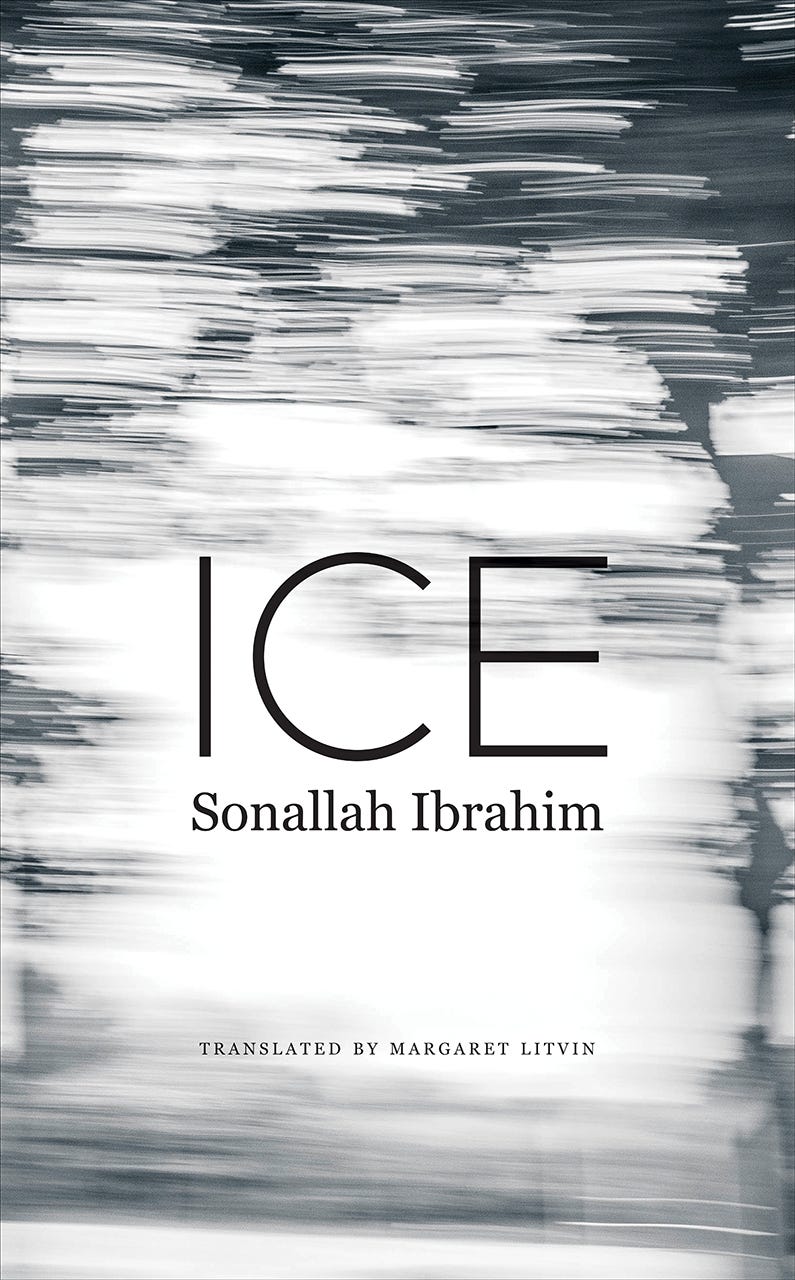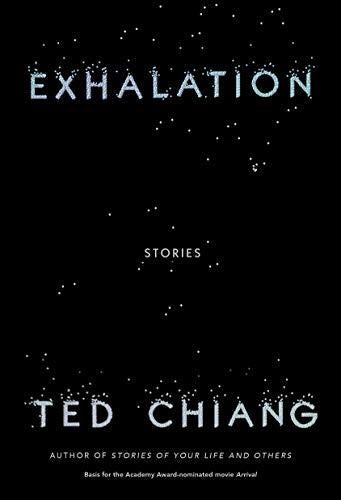Words for Worlds - Issue 91
Hello everyone, and welcome to another issue of the Words for Worlds newsletter.
Thank you to SciFi Mind for this detailed review of The Sentence, this one focusing a lot more on the character work, especially that of Nila, the protoganist. It ends - as quite a few others have done - noting the lack of availability outside India. An update on that front, by the way: two weeks ago, the book went “on sub” as they say - that is, it’s been sent to editors on both sides of the pond. It’s a long road ahead - probably months before we hear back - but fingers crossed that something will come out of it.
What I’m Reading
Continuing with my selections from my visit to Seagull Bookshop earlier in February: I picked up Sonallah Ibrahim’s Ice on the strength of the other novel of his that I’d read - and loved - Warda. Warda is, in fact, one of my favourite novels - it tells the story of the Dhofar Revolution through the eyes of a woman revolutionary, Warda, and through the lens of two generations, far removed from each other. It’s a book I’d recommend to just about everyone.
Ice on the other hand - whew, what a disappointment. It tells the story of an Egyptian student who is studying for a year in Moscow in 1973 - in the heart of a gradually decaying Soviet Union. The choice of year is not random: 1972 was the year of a mass student movement in Egypt, memorably portrayed in fiction in Clouds Over Alexandria, and in non-fiction in The Stillborn. It’s one of the most interesting periods in Egyptian history - and, for that matter, in the post-colonial history of the global South.
But Ice itself was a massive disappointment. After setting up a premise with such promise, Ibrahim spends most of the book describing the various forms of bad sex that the protagonist and his friends engage in. I suppose this might be one lens through which a writer can talk about sexual repression and liberation, but when it goes on for three hundred pages, it starts to get a little tedious. And merely interspersing it with news about global political events (such as the Yom Kippur War) is nowhere near enough to save the novel.
I did feel, though, that this was a book that could be better appreciated when placed in context by a review. I did find an excellent review in Jadaliyya called “Revolution on Ice.” It’s a review I recommend reading whether or not you intend to read Ibrahim because, like the best of reviews, it not only gives you a greater understanding of the text, but also of the social and political context that the text is responding to.
Continuing my recent re-acquaintance with post-World War II Italian politics, this was yet another Seagull pick (honestly, where else would you find such books?). Luigi Pintor was one of those communists who fell out with the official party line in the mid-1960s (although in his case, this did not end his political career). Thus, his (intentionally) fragmentary memoirs have a feel of the Koestler-type disillusioned ex-traveler, but Pintor, I think, is too wise to engage in denunciations. The memoir is divided into three parts - the first one traces his childhood during World War II (as a child, he was almost executed after being captured planning sabotage, and was only “saved by the bell” - i.e., the fall of the city to the allies). The next two transition into epigraph-style accounts of society after the War, and more general existential observations about life and politics.
Pintor is interesting at all times - and in particular, I found this book compelling reading after having recently read about the operaismo and other worker-oriented movements of the time (discussed in a previous edition of this newsletter). This was a very different - almost elegiac - approach to the same historical era, and one that - when read alongside novels such as Equal Danger - begins to put colour to the mental picture one has of this uniquely fascinating period.
What’s Happening at Strange Horizons
As one of a minority who never got past the first Dune novel (I watched both movies and enjoyed the soundtrack and special effects, but that was about it), I really enjoyed Marina Berlin’s critical take on Dune: Prophecy.
The Indian Scene
Nothing new this fortnight. I do have an update on the IF Anthology of Indian SF: we’re now in the process of edits on the selected stories, which should be done this month; and we’re on schedule for getting the anthology out by July.
Recommendations Corner
We’re reading Ted Chiang’s collection of short stories, Exhalation, this month for the Delhi Science Fiction Reading Circle; and while Chiang is hardly unknown - or even underrated - it has been a while since this book came out … so why not jog the memories of readers who’ve had it on their TBRs, but haven’t gotten around to it yet?
Chiang is probably best known for writing the story that formed the basis of the film Arrival, but it’s in this collection that I think you see him at his best: from historical fiction with a touch of magical realism to genuinely haunting space opera, this is an incredibly versatile collection of SF that showcases the genre in all its kaleidoscopic glory. And it’s a collection that, I think, is good for everyone: it’s good for someone who is looking for an entry point into the genre; it’s good for seasoned SF geeks who haven’t read Chiang yet; and it’s good for a re-read, like I’m doing - pretty much all the stories hit me just as strongly on a second read as they did the first time.




If you're in Delhi, you can DM me and I'll send you the Discord link, which will have the details.
I hope you will review Leila Lalani's 'Dream Hotel'. It hits very close to home.